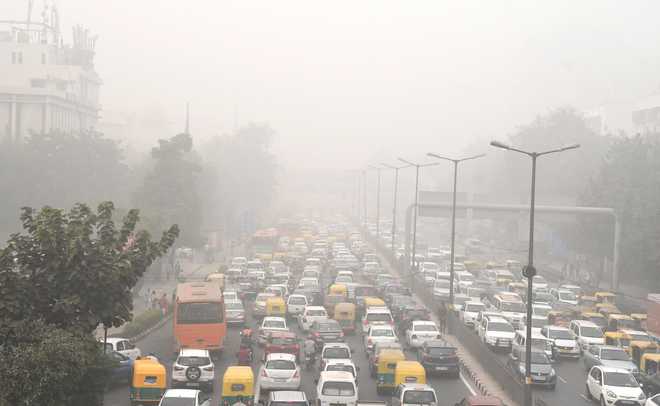
Smog and high pollution days highlight the need to find solutions to fuel-burning vehicles. More than two crore vehicles — two-wheelers, three-wheelers, commercial and passenger — are added every year. Besides polluting the atmosphere, there is the additional vulnerability of being dependent on imported oil to the extent of 80 per cent. Naturally, when Union Minister Nitin Gadkari told automobile manufacturers that the government was determined to make India an all-electric passenger vehicle market by 2030, everyone took note.
It would, thus, be logical to expect that the government would spare batteries — the most expensive part of the electric vehicles (EVs) — from high taxes, but this is not so. Batteries continue to attract taxes at the rate of 28 per cent, even as the tax on EVs is 12 per cent. Thus we have the case of components being taxed more than the product. Universally, EVs are subsidised by governments as they seek to mitigate the damage done to the environment by fuel-burning vehicles. Hybrid cars suffered more because of high taxes, leading to a substantial increase in prices and, consequently, loss in sales.
Indian manufacturers have made EVs of various kinds — two-wheelers, three-wheeler passenger and goods carriers are available, as are EV cars by Mahindra. There is an urgent need to develop community charging stations as well as facilities to swap batteries, and thus extend the range of such vehicles. Intra-city travel can be accomplished even with the existing EVs, whereas for long-distance travel, hybrids are more suitable. India imports hybrids from top manufacturers, who pay substantial taxes and import penalties, even as indigenous efforts are at a nascent stage. EV sales have shown a remarkable upward trajectory but that is largely because of a low consumer base. India needs clarity of vision, standards that allow interoperability, especially for charging between vehicles made by different manufacturers and above all, a tax regime that encourages its citizens to invest in what is still a technology that has not stood the test of time. Incentives, not punitive taxes, are needed to encourage the shift to a cleaner alternative.



























